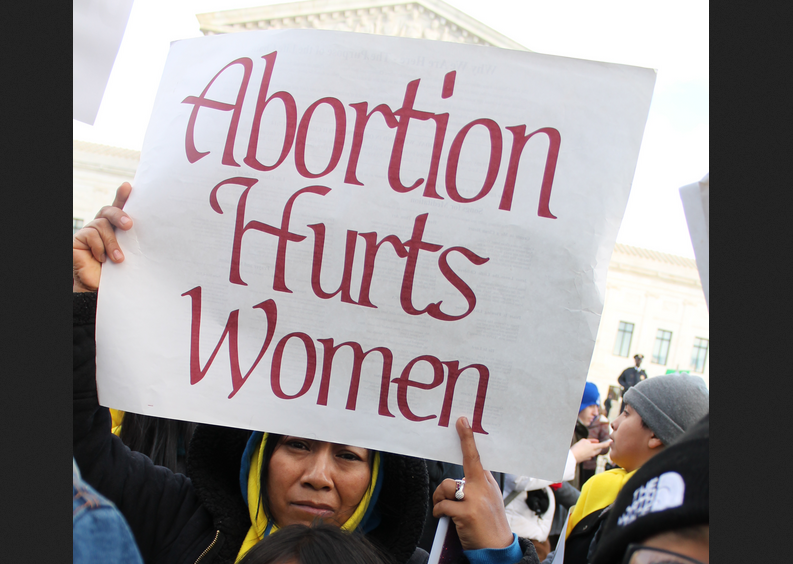Abortion advocates often say that abortion brings relief to pregnant women. This is the promise of the abortion center staff when working to close the deal with the young women who come to them with unplanned pregnancies.
While Planned Parenthood and other abortion proponents continuously attack pregnancy centers for not offering abortions, they deny the testimonies of grieving post-abortive women.
Planned Parenthood has even claimed that, “over 95% of people who’ve had abortions say that they mostly felt relief after that abortion.”
Please subscribe to the LifeNews YouTube channel for the latest pro-life videos.
A new study from the Elliot Institute refutes this claim, finding instead that grief is far more common after abortion.
Comparing women who had miscarriages or other natural pregnancy losses to women who had abortions, the study found that both sets reported comparable levels of grief, depression, and anxiety. However, the women who’d had abortions reported much higher levels of guilt, shame, and regret.
Relief was prominent among only the 30% of women in the study who described their abortions as “wanted and consistent with my values and preferences.” For all others, relief was seldom reported in the study published in late March.
Seventy percent reported feeling pressured to abort by other people or circumstances. These outside pressures were “strongly linked to women reporting that their abortions were inconsistent or contrary to their own values and preferences,” according to a statement on the study’s release.
Roughly 13% of the women in the study who’d had abortions described their abortions as “coerced.” And these women consistently ranked their negative emotions as more severe than all the other subgroups. Women in the group reporting coercion were also the most likely to say that they still have intense negative feelings, even 20 years after their abortions.
The claim by abortion proponents that relief is the most common reaction to abortion is actually based on just two studies, according to David Reardon, director of the Elliot Institute, and author of the new study on the purported relief that comes form abortion.
Both of the earlier studies were questionable, relying on small samples of women who had been recruited to participate while at abortion facilities, and a considerable majority of women in each either refused or dropped out of the studies.
“This is a reflection of self-censure bias,” Reardon said.
“At the time they are being recruited at an abortion clinic, the women who anticipate or are experiencing the most negative feelings are the ones most likely to decline or drop out,” Reardon said. “They don’t want to think about their abortions, much less discuss them with a stranger.”
“That’s why these abortion clinic studies have participation rates as low as only 30%,” Reardon added. “They mainly include only those women who are most confident that they made the right decision and who have the fewest negative feelings.”
Reardon conducted a random national survey of 1,925 women ages 41 to 45 years old for his study. The survey topic was not divulged ahead of time and a “stigma reduction” methodology was used prior to the women being asked about their abortion histories.
This resulted in 21.2% of the women surveyed acknowledging a history of at least one abortion, a figure very close to the 23.7% lifetime abortion rate projected by the Guttmacher Institute, but also twice the rate of most national surveys, which typically see much higher concealment rates.
Reardon believes the results of the study, part of Unwanted Abortion Studies, funded by the Charlotte Lozier Institute, should be included in abortion provider advertising and informed consent policies.
His findings are available for reanalysis and the methodology replicable. Reardon says this makes the results disprovable.
“The fact that researchers who work for abortion advocacy groups have not found any flaws in our prior studies, based on this same data set, underscores the accuracy of these findings,” he said. “Lacking any evidence to dispute our results, their only response has been to pretend that our findings don’t exist, hoping the media will do the same.”
Another study conducted by Reardon and published in January; Suicide risks associated with pregnancy outcomes: a national cross-sectional survey of American females 41-45 years of age,” found double the suicide risk among women who have had an abortion as compared to other women.
From the study results:
Aborting women were twice as likely to have attempted suicide compared to other women. Aborting women, especially those who underwent coerced or unwanted abortions, were significantly more likely to say their pregnancy outcomes directly contributed to suicidal thoughts and behaviors compared to women in all other groups.
“Women should be told that if they feel any pressure to abort, or have maternal or moral conflicts with it, negative feelings are more likely than relief,” he said regarding this latest study. “And in many cases, these negative reactions can last for decades. Anything less is deceit.”
LifeNews Note: Patty Knap is a certified pregnancy counselor, faith formation teacher, ABA therapist for autism, and freelance writer from Long Island. This originally appeared at Pregnancy Help News.
The post Abortion is Not Pro-Woman: Women Feel Grief Not Happiness After Abortions appeared first on LifeNews.com.

